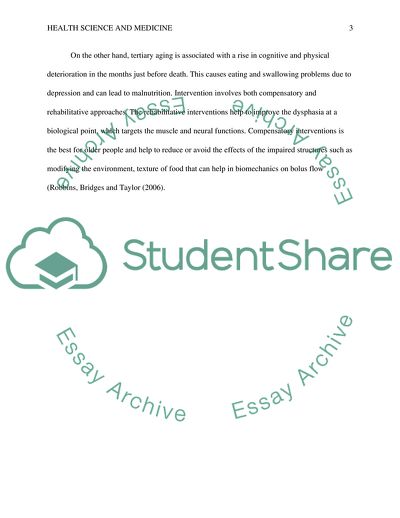Aging-Related Changes in Swallowing Symptoms Example | Topics and Well Written Essays - 250 words. https://studentshare.org/medical-science/2106034-aging-related-changes-in-swallowing
Aging-Related Changes in Swallowing Symptoms Example | Topics and Well Written Essays - 250 Words. https://studentshare.org/medical-science/2106034-aging-related-changes-in-swallowing.


